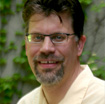Preaching is an event. More specifically, it is two inseparable events,the end of the rule of law and the beginning of Christ’s kingdom.
An event is what we used to call “a happening,” and is therefore more like the yearly Minnesota State Fair that takes place yearly on the fourth weekend in August and the first weeks of September than it is something like gravity. When you have an event it is an interruption of the regular, and is typically what we would call “exciting.” Gravity is there all the time wherever you go-even weakened as it is in space and so is what we call a law of the “natural” sort. So, gravity is not an event: historical, particular, in one place and time and so here or there and not everywhere. Gravity is not exciting.
The fact that preaching is historical, and not a natural law is considered by most to be its weakness, but the eventual situation for preaching really is its power to interrupt this old world, and is the reason we are excited about it. Put simply, it means that preaching can come as something other than a law. What else is there but law? Structure? The Ought? Well, the gospel, which is forgiveness of sins. Forgiveness of sins is an event, a happening, and it is exciting since it removes us from our hum-drum place named death and translates us to a new life. This means that preaching is not an event exactly like the Minnesota Fair since it is the final, dramatic event that we usually call the Last Judgment. Therefore, it is not included as one more event among others in the interminable passage of time.
Yet, it is still an event. As with any event, preaching is an accident, thus it is without essence or even place in the cosmos or the sciences that investigate ontologically the structure of that whole. It is an accident of history, or we could say, in history as long as we did not think that such preaching was simply one more moment in the string of happenings put together to explain where we have come from and where we are going. Even history as the narrative of our lives has its laws, so we observe when modern historical critical exegetes like Ernst Troeltsch, laid out the laws for what can constitute history in order to rule out miracle-specifically the “miracle” of the resurrection. If resurrection is ruled out as an event, then preaching is nothing. But in point of fact, it is something, so we have to ask how it is that preaching comes now and then to interrupt the laws of our daily life and so justify the unjust by the mere speaking. That is, after all, what is meant here by the particular event of preaching: the Creator speaks, and the creature is killed and raised. All other events pale in comparison to this final, eschatological one. In other words preaching is not that event which follows having a cup of coffee at breakfast and precedes a turkey dinner in the afternoon, nor for that matter is it the event that follows the reading of the Gospel and precedes the hymn of the day in the liturgy. Preaching is not part of what some have called “salvation history.” Preaching is the last thing a sinner hears and the first thing the saint hears. It is event, accident, final-and as Jesus promised with the Last Judgment, it always comes as a surprise. At first the surprise is terror, like any car accident, and then it is exciting and new because it is giving a life beyond the law.
Preaching is an accident of history that arrives suddenly, incalculably, and so it comes as an intervention as Alain Badiou describes it in Being and Event–unregulated and without any rule of order.1 We even say it is preaching’s event only when it is released from the law and becomes “new” or lawless without denying one iota of that same law. So it was for the Ethiopian eunuch and his preacher Philip, for Jonah and the Ninevites, Paul on the road to Damascus and all the nearly infinite moments of preaching recorded in Scripture and perpetrated to the present.
Yet the accidental nature and suddenness are not enough to mark what we call preaching, since preaching’s event depends upon the “event proper” which is the once and for all death of Jesus Christ, and his unparalleled resurrection, which is eventless-or as we say “eternal.” Event really only applies legally to the cross, since this is the end of all events of history which lead to it. Therefore preaching is an accident of history that arrives without any rule of order in the form of a declaration of what happened to Christ-he died on the cross. History ends there. Yours and the world’s. The declaration is what we call “news.”
Christ’s resurrection is also a declaration, but the kind that takes leave of all legal language and its grammar so that it now speaks strangely of what lies beyond any event of this world in what is simply called “new.”
These things of Christ are all known by anyone paying attention, including the devil, despite however strange this may seem when we try to tell the overall story of history. Where does Jesus fit into the big stories of wars and empires? But remember, when sinners tell their own story they do so, as Hegel observed, by removing all contingency-that is they look back and see it just “had to be this way.” The South could never have won the Civil War despite what Lee did at Gettysburg. But here is the real kicker. Preaching emerges out of the accident of the cross and is applied accidentally to you in the present by a preacher sent specifically for the purpose– we could say non-accidentally (Romans 10: “How will they have a preacher unless one is sent?” the Holy Spirit sends a preacher. Preaching is thus not an abstract, general event that occurs routinely and commonly in many places and times, but arrives for you specifically. It is what most people call “chance” or “fate” which actually means to us the exact same thing. Before it happens it could have been otherwise, after it happens, it couldn’t have been any other way. So here we have our two parts of true preaching: the cross of Christ, and what Luther liked to call “the application of the pronoun” for you. If you leave either out of your sermon, you have not preached. When you have preached, it comes to the sinner as chance and to the saint as fate.
Preaching’s content then is simple: Christ was crucified for your trespasses; raised for your justification (Romans 4:25). A preacher can try to get at this from infinite angles, but this is the thing to declare sooner or later. Preaching has Christ crucified and your trespasses in it, then it has Christ raised for your justification. What else is there? The end of the old world and your Adam has come, the new has begun. If you sat down to list all the “events” of your life this would be the last announcement: for your trespass. If you asked what happens next-after all events are over? The answer is simply: Christ has been raised for your justification.
Preaching this way is not hard. The difficulty comes when we want to fit this announcement and preaching into one of the old discourses (ways of speaking) in the world. Paul boils them all down to two: that of the Jews and that of the Gentiles. The Jews have rhetoric, language, speaking that seeks “the sign” and so awaits a prophet. The Gentiles have a rhetoric that seeks wisdom and so awaits the guru who guides your journey. Badiou suggests we call these two: regimes of discourse. The terminology is helpful becomes it means rules by which discourse is ordered and by which it comes to rule over you. The Gentile regime of discourse seeks to see how it is that you fit into the big picture or cosmos. How you are “one”? The Jewish regime of discourse seeks to identify how it is that you are other, separate, not one but unique and so to prove that you are the elect. Thus it awaits the “sign” of an election that took place elsewhere.
Preachers are neither the sage giving the big picture to little persons, nor the prophet using signs of the near or far future to determine one’s election. The prophets were until Christ, as Luke says. Preachers point no longer to signs, nor do they direct the journey of the searcher for wisdom, but declare the end of history and the beginning of the new in Christ alone. There is therefore no more “prophecy” and no more “wisdom” to seek. These two are at an end. What is left to say? Christ died for your trespasses and was raised for your justification. Events are done and God is doing the universal thing par excellence-electing his own in time and place, here and now, through the declaration of this very preacher. When this happens, there is neither Jew nor Greek, only Christ and his own. No more seeking signs to confirm election, the word is the Sign, Seal and Maker. No more seeking wisdom in the structure of being and your place in it (the human condition and wondering about what God is doing in this place). You have a Creator and you are His creature-justified-aligned and together in perfect coordination-without sin and in need of no law. There the matter ends.
Of course the difficulty in hearing such a preacher or declaring what such a preacher declares is the fear of having the law come to an end and there is left nothing but Christ justifying sinners. If we stay for the moment with Badiou and his interest in Freud and Marx, we can say with him that both the Jews and the Gentiles have their favored discourses brought to an end, which are discourses “of the Father.” That is language is finally used as a means of mastery-either the wise man or prophet, and mastery holds that communities are bound together by obedience to the Father’s law. Mastery is the use of that law, or the attempt to reject that law in the form of the antinomian dream.
Instead, true preaching is a discourse of the Son, who receives and is finally done unto. The Son took the form of a slave, even unto death, the death on the cross. There is your problem: Preaching is an event of election, and Christ chooses badly. You are elected by a preacher outside yourself in an accident of time and place not only despite our failure to master the law but in opposition to all your “mastery,” leaving you dead in your sins. Then apart from these sins, since they now belong to Christ, you are made a perfectly passive creature on whom Christ bestows everything needed for life-and in unbearable excess-giving His own Self unto eternal life. All of this is accomplished purely by being uttered so that the law kills and the Spirit makes alive in the simplest declaration that has no sign (simulacrum) and no wisdom (order) in it at all-Christ was crucified for your trespasses, raised for your justification. Preaching is that exciting and accidental event when this comes for you. At the same time preaching is that not-event that we call resurrection from the dead. End of story. Beginning of life eternal.
1Alain Badiou, Being and Event Translated by Oliver Feltham (New York: Continuum Press, 2006) 201-2.

